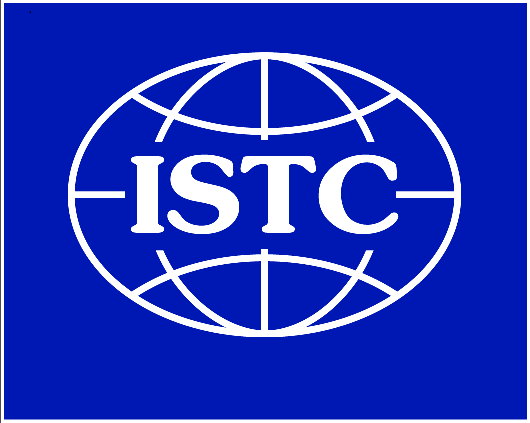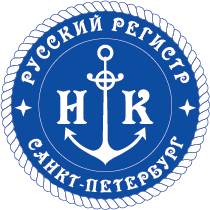NEWS AND COMMENTS
Declaring the transport of dangerous goods - an additional security guarantee...
Pre-shipment inspection of tank containers intended for the carriage of dangerous goods...
ISTC started training experts...
Preparation for the XIV International Conference "Multimodal Transport of Dangerous Goods"...
Training of specialists in a new quality...
"Sea Trade Port "Ust-Luga" JSC has successfully passed the certification audit...
IDGCA presents Russian version of the IMDG Code latest edition on disks...
An IMO circular does not define competency of national authorities...
XIII International Conference «Multi-modal transportation of dangerous goods»...
An IMO circular does not define responsibilities and authority of national organizations...
| Merry christmas and Happy new year! | |
|---|---|
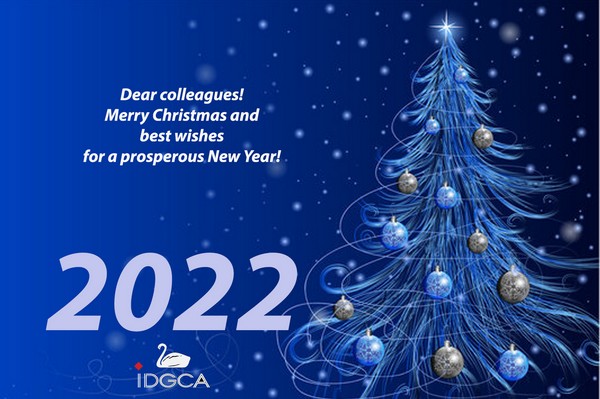 | |
Risk management in the transport of dangerous goods Results of the international seminar | 15.12.2021 |
|
On December 14, 2021, under the auspices of the UN and OECD, an international seminar was held on the safety of transportation and handling of ammonium nitrate and similar dangerous goods. They considered the security measures that are being taken by countries after the tragic events in Beirut on August 4, 2020. Seminar participants from almost all countries, including from Russia, drew special attention to the need for special training of managers and workers whose activities are related to the production, processing, storage and transportation of ammonium nitrate. IDGCA" NP together with ISTChas developed unique training programs for managers, engineering and technical personnel and employees, which cover the issues of industrial safety and the safety of transportation of dangerous goods by various modes of transport. The course duration is 40 academic hours. Upon completion of the course, examination and certification are held. Special attention in the programs is paid to the study of the problem of risk management in the multimodal transportation of dangerous goods. Training is currently being conducted online. IDGCA experts also provide advice on the development of risk management systems at enterprises producing chemicals, as well as in port areas where hazardous substances, including ammonium nitrate, are stored and handled. | |
Audit of the management system of ISTC | 29.11.2021 |
|
The international certification body DNV conducted an audit of management system at the ISTC, which operates in accordance with the requirements of the International Standard ISO 9001-2015. The audit did not reveal significant non-conformities of the management system, and therefore the system was recognized as complying with the existing requirements and received a positive assessment. A functioning management system allows ISTC to conduct training sessions at a sufficiently high level, and not only with Russian students. In 2021, the teachers of the center conducted training for representatives of 3 foreign countries. | |
Training of ADN experts on the transport of dangerous goods | 26.11.2021 |
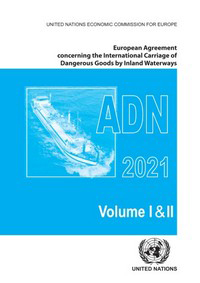
The European Agreement concerning the Internatioal Carriage of Dangerous Goods by Inland Waterways (ADN) was signed in Geneva on May 26, 2000 and entered into force on February 29, 2008. The regulations annexed to ADN contain provisions for dangerous substances and articles and their carriage, both in packages and in bulk on dry cargo ships and tankers. These regulations also contain provisions for the construction and operation of such ships. They also relate to the requirements and procedures for inspection, issuance of certificates of approval, recognition of classification societies, monitoring, and training and verification of personnel. In accordance with the requirements of ADN regulations, companies involved in the transport of dangerous goods by inland waterway transport must train all the employees involved in this transport and related activities. Specific requirements are laid down in the regulations for the training and qualification of safety consultants and experts. A group of experts from one of the European countries, involved in the transport of dangerous goods on tankers, was trained at the ISTC in the period from 17 to 20 November. After training, the graduates were certified as experts in the "IDGCA" NP. Feedback from graduates about the courses is extremely positive. The staff of teachers is certified by "IDGCA" NP and possesses not only theoretical knowledge, but also has a rich experience of working on ships carrying dangerous goods, including chemical tankers. | |
"Russian Register" JSC is an independent inspection body for the transportation of heavy goods | 03.11.2021 |
|
The delivery of a heavy cargo (about 400 tons) to the north of Russia has been successfully completed. A correctly chosen logistic scheme, including sea transport, an approved scheme for placing and securing cargo and control during all cargo operations, made it possible to deliver the cargo in accordance with the schedule and perfectly safe. Independent inspection at all stages of cargo transportation was provided by the inspectors of "Russian Register" JSC. The cargo was insured by "Sogaz" JSC. | |
Port "Bronka" improves the qualifications of the safety advisers | 29.10.2021 |
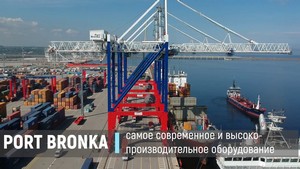
The multifunctional marine transshipment complex (MMTC) "Bronka" is the only deepwater terminal in the Port Bolshoi of St. Petersburg. This is the most modern port in the North-West region, which handles general, rolling and container cargo, including dangerous goods of almost all hazard classes. The management of Phoenix Company, the operator of Bronka MMTC, pays the most serious attention to ensuring the safety advisers of the transshipment of dangerous goods, putting at the forefront the maintenance of a high level of qualifications of personnel of all levels. From the very beginning of its activity, the company conducted training for its employees of various categories at the ISTC, many of whom (managers and leading specialists) were put forward for certification in "IDGCA" NP as advisors on the transportation of dangerous goods. At the end of October, another group of managers and leading specialists of the Phoenix Company were trained and certified as advisors. Cooperation of "IDGCA" NP with the "Phoenix" Company is not limited only to personnel training and certification. For example, the experts of "IDGCA" NP were directly involved in the development of measures for the implementation of customs control of dangerous goods at "Bronka" MMTC. | |
Assignment of competencies | 22.10.2021 |
|
In accordance with the UN Model Regulations "Recommendations on the Transport of Dangerous Goods" and other international regulations, the competent authority is a body designated by the administration of the country, which has the right to independently provide services for the approval of containers into operation or to transfer its functions to other organizations - inspection bodies, classification societies, etc. Leading classification societies have created the International Association of Classification Societies (IACS), which develops its own rules and raises the bar for requirements for various objects, primarily for sea and river vessels. Many classification societies issue their own rules and offer services to businesses. The main task of all classification societies, without exception, is to offer their services in the field of security. There is fierce competition between them. In the transport of dangerous goods, classification societies are also actively involved along with other organizations. Many competent authorities instruct classification societies to issue approvals on behalf of the administration. In accordance with the Convention for Safe Containers (CSC), a CSC number is issued for each type of approved container. The number is given by the administration. However, this does not mean that only classification societies can approve containers for operation and issue numbers on behalf of the administration. Unfortunately, some international organizations and business representatives do not always correctly interpret the powers of classification societies and confuse them with the powers of administrations. For example, the Bureau International des Containers et du Transport Intermodal (BIC) in its BIC Code Register 2021 on a scheme with a sample of Safety Approval plate erroneously indicated that the number is issued according to the rules of the classification society. | |
Training and certification of ADN experts | 12.10.2021 |
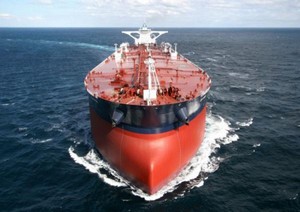
On November 20, 2021 at the International Dangerous Goods and Containers Association (IDGCA) certification of experts in accordance with the requirements of Chapter 8.2 "Preparation related requirements" of the Regulations for the European Agreement concerning the International Carriage of Dangerous Goods by Inland Waterways (ADN) will take place. Based on the results of the certification, the specialists will be awarded certificates of special knowledge in the field of ADN (in relation to the carriage of dangerous goods by tankers). The certification will be preceded by advanced training courses, which are conducted by the International Staff Training Center (ISTC) from 17 to 20 November 2021. ISTC carries out educational activities in accordance with license ? 1734 dated February 20, 2016, and the quality management system complies with ISO 9001:2015, which is confirmed by the certificate of DNV GL classification society ? 251622-2017-AQ-MCW-FINAS dated December 27, 2017. We invite members of ships crews and employees of shipping companies to undergo training and certification at the ISTC and IDGCA. | |
Preparations for the 59th autumn-winter session of the UN Sub-Committee of Experts on the Transport of Dangerous Goods | 09.03.2021 |
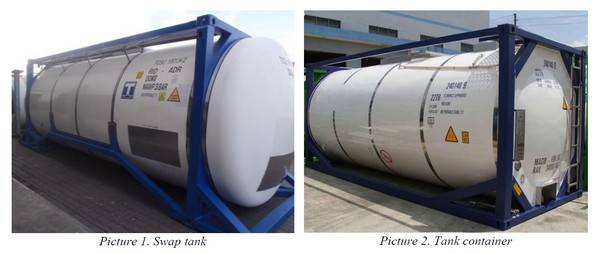
The 59th session of the UN ECOSOC Sub-Committee of Experts on the Transport of Dangerous Goods will be held from 29 November to 8 December. A wide range of issues are planned for discussion, including proposals for amendments to the requirements for portable tanks in the UN Model Regulations "Recommendations on the Transport of Dangerous Goods" (item 6(c) of the provisional agenda for the session). The IDGCA has prepared a document for the 59th session of the Sub-Committee with a proposal to amend the testing requirements for the frame of portable tanks in Chapter 6.7 of the Model Regulations. The current text of paragraph 6.7.2.18.2 of the Chapter 6.7 prescribes the testing of the tank frame to be in accordance with the ISO 1496-3 standard, which is applicable to only one type of portable tank - the tank container. Instead of referring to the ISO 1496-3 the Association experts suggest referring to the Convention for Safe Container (CSC) which contains frame testing requirements for almost all types of portable tanks. This proposal had already been discussed at the 58th summer session of the Sub-Committee, during which most of the Sub-Committee members who spoke agreed on the need to clarify the testing requirements for portable tanks` frame. The updated document will be published on the UNECE website shortly. | |
20 YEARS ON THE ROAD OF INDEPENDENCE AND COMPETENCE | 13.08.2021 |
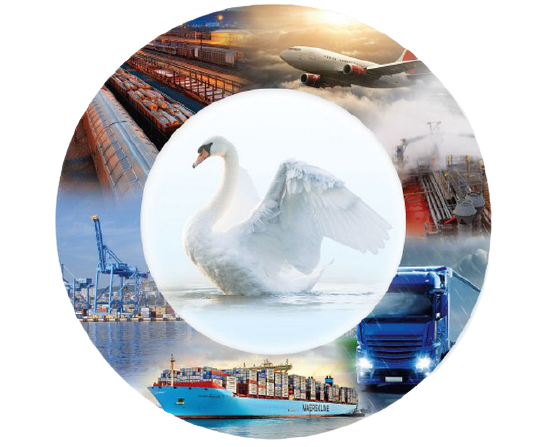 August 16 is the date of registration of the International Dangerous Goods and Containers Association (IDGCA). The Association was established with the support of the Ministry of Transport of the Russian Federation and business representatives to coordinate efforts for improvement of national and international rules of dangerous goods transportation and create favorable conditions for safe business development in this sphere. The Association was founded by the Union of Russian Industrialists and Entrepreneurs, Russian Maritime Register of Shipping, Uralvagonzavod, Lukoil-Kaliningradmorneft and Transport Industrial Service. From the first days of functioning the Association established contacts with international organizations and in 2004 obtained consultative status in UN ECOSOC Committee of Experts on the Transport of Dangerous Goods and on the Globally Harmonized System of Classification and Labelling of Chemicals. Since then, for 17 years now the Association has been participating in the work of the Committee, making suggestions and taking part in the discussion of amendments to the rules of dangerous goods transportation by various modes of transport. In 2002 by decision of the board of IDGCA members under the chairmanship of the first President of the Association V.V. Ruksha “Russian Register” JSC, an independent survey company, was founded. The purpose of the company was to render practical services in dangerous goods transportation for shippers, carriers and transport equipment manufacturers. In 2003 the Association established the International Staff Training Center (ISTC), which conducts professional training for specialists involved in the handling and transportation of dangerous goods. To this day ISTC has functioned as the only training institution for professional advisers in the field of dangerous goods transportation, and has gained an excellent reputation among both business representatives and supervisory authorities. Many port authorities and regulators personnel have gained knowledge at the International Staff Training Center and have been certified as dangerous goods inspectors by the IDGCA. The International Dangerous Goods and Containers Association constantly monitors the activities of its subsidiaries. The Association does not provide any paid services. The Association is funded to carry out its functions solely by membership fees and deductions from the subsidiaries. The Association is registered by the Ministry of Justice of the Russian Federation and operates in full compliance with current Russian legislation for non-profit organizations. IDGCA, in addition to participation in the improvement of international regulations on the transport of dangerous goods, also prepares its proposals for the Russian Government to establish a national regulatory framework in the field of dangerous goods. The basic function of the Association is to protect member organizations and partners in the framework of the constantly changing national and international legislation. Unlike many associations and unions, IDGCA is completely independent of administrative structures and therefore has its own independent view on various aspects of activities related to dangerous goods. The International Dangerous Goods and Containers Association stands for the creation of conditions for business development based on fair competition. | |
Draft ISO 21013-3 standard | 04.08.2021 |
|
IDGCA received a draft of the revised standard ISO 21013-3:2016 "Cryogenic vessels. Pressure-relief accessories for cryogenic service. Part 3: Sizing and capacity determination". ISO 21013 consists of the following parts under the general title "Cryogenic vessels. Pressure-relief accessories for cryogenic service":
The draft, which is a part of the second edition of the standard, has been developed as part of the technical revision of the first edition (ISO 21013-3:2006). The vote on the draft closes on August 31, 2021. | |
IDGCA submitted a proposal for the Resolution of the XI International Forum "Transport Safety" | 02.08.2021 |
|
The XI International Forum "Transport Safety" was held from the 8th to 9th of July with the support of the State Duma of the Federal Assembly of the Russian Federation, the Ministry of Transport, the Ministry of Internal Affairs, the Ministry of Emergency Situations and other specialized federal and regional authorities, commercial and public organizations. International Dangerous Goods and Containers Association took part in the Forum. For the Resolution of the Forum the following proposal was submitted by the experts of the Association:
| |
Licensing of dangerous goods transportation continues | 28.07.2021 |
|
The Resolution of the Government of the Russian Federation ? 1243 "On licensing transportation of dangerous goods by inland water transport, sea transport and towing by sea transport (unless the specified activity is carried out to meet the own needs of a legal entity or an individual entrepreneur)" dated July 21, 2021 has been published to replace the canceled ? 193 dated March 06, 2012. The licensing regulations approved by the Resolution were developed in accordance with the Federal Law “On licensing certain types of activities”. In accordance with the Regulation on licensing transportation of dangerous goods by inland water transport and sea transport, activities on the transport of dangerous goods include the following:/p>
The assessment of licensees' compliance with license requirements is carried out by the licensing authority (Rostransnadzor) within the framework of federal state control (supervision) in the field of merchant shipping and inland waterway transport in the manner established by the Regulation on federal state control (supervision) in the field of merchant shipping and inland waterway transport, approved by the resolution of the Government of the Russian Federation ?1047 dated June 29, 2021 "On approval of the Regulation on federal state control (supervision) in the field of merchant shipping and inland waterway transport and amendments to the Regulation on federal state transport supervision". It should be noted that in comparison with the previous Licensing Regulations, the following amendments are made:
The requirements for the training of specialists responsible for the transportation and handling of dangerous goods remain the same. The International Staff Training Center invites students to the next training courses for specialists in the transport of dangerous goods, which will be held from 9 to 13 August. | |
New partner in the transport of dangerous goods | 27.07.2021 |
|
“Syngenta” Ltd became a member of the IDGCA. The Syngenta Company, founded in Switzerland in 2000, has offices in 90 countries of the world, including Russia. The company's products are seeds of key field crops and chemical plant protection products. Plant protection products require proper storage and transportation and in some cases are classified as dangerous goods. Consultation and assistance on this matter will be provided to the new partner by the experts of the IDGCA. | |
The heads of the Murmansk branch of Norilsk Nickel improve their professional skills in the transportation of dangerous goods | 23.07.2021 |
|
During this week, the heads of the Murmansk branch of Norilsk Nickel took advanced training courses at the International Staff Training Center under the program “Training of advisors for the safe transportation of dangerous goods”. Together with the heads of Norilsk Nickel, an employee of the Administration of the Sea Ports of the Sea of Okhotsk and the Tatar Strait, employees of Arctic-Consulting-Service, Azovproduct and Clariant took the training. In addition to the mandatory program of the course, during the training period, issues related to technical regulation in the field of transportation of dangerous goods and containers were discussed. The listeners passed the knowledge test on the new examination form of the International Staff Training Center and answered questions from the IDGCA experts in order to confirm the acquired knowledge and obtain the status of an advisor. The International Staff Training Center is the only organization in Russia that practices training that meets the requirements of the IDGCA and international regulations for the transport of dangerous goods. | |
International organizations` meetings on the transport of dangerous goods and containers scheduled for the second half of 2021 | 19.07.2021 |
| |
Meeting of the IMO CCC Sub-Committee | 16.07.2021 |
|
The 7th session of the IMO CCC Sub-Committee (Sub-Committee on Carriage of Cargoes and Containers) is scheduled for September 6-10, 2021. The meeting will be held remotely. To date, 80 documents have been submitted for consideration at the session. Issues for discussion in accordance with the agenda cover various proposals for amending international regulations issued by IMO – IGF Code, IG? Code, IMSBC Code, IMDG Code and others – as well as consideration of reports on incidents related to dangerous goods and environmental pollution, revision and unification of the interpretation of various provisions for the safe transport of dangerous goods. | |
XI International Forum "Transport Safety" | 09.07.2021 |
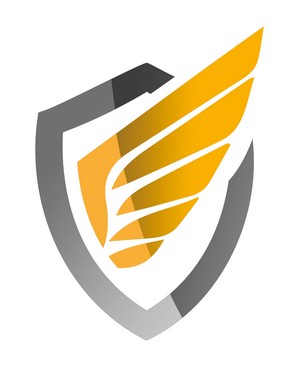
From 8 to 9 July, the XI International Forum "Transport Safety" was held with the support of the State Duma of the Federal Assembly of the Russian Federation, the Ministry of Transport of the Russian Federation, the Ministry of Internal Affairs, the Ministry of Emergency Situations and other specialized federal and regional authorities, commercial and public organizations. Topics for discussion covered all types of transport and various aspects of passenger and cargo transportation: regulatory and legal regulation for ensuring transport safety, traffic and operation regulations for vehicles, anti-terrorist security, digital technologies, personnel training and certification, safety culture. IDGCA is a constant participant of this important and interesting event. General Director of IDGCA, Mikhail Ognev, and Deputy General Director, Vladimir Tsikhiseli, made a short report at the Forum on Thursday on the topic "International regulations for transportation of dangerous goods in intermodal traffic". The presentation of the report was held remotely using the Zoom platform. The report highlighted what international regulations regulate the transportation of dangerous goods in the world and in Russia, and raised the issue of the lack of clear legislation in the field of transportation of dangerous goods in the Russian Federation at the moment. The Forum is a platform for the exchange of experiences and ideas, discussion of problems among all experts in the field of transport, including representatives of the authorities, so the questions and proposals raised at the event are likely to interest many people and will be developed further. IDGCA expresses gratitude to the organizers of the Transport Safety Forum. | |
58th session of the UN Sub-Committee of Experts on the Transport of Dangerous Goods | 07.07.2021 |
|
During the last week from June 28 to July 2, the 58th session of the UN ECOSOC Sub-Committee of Experts on the Transport of Dangerous Goods was held. The session was attended by experts from 23 countries and 29 non-governmental organizations, as well as representatives of international organizations and observers from several countries. The meeting reviewed 31 official documents and 48 informal documents dealing with problems related to explosives, classification of substances, electrical devices, transportation of gases, amendments to the text of the Model Regulations (UN Recommendations on the Transport of Dangerous Goods), requirements for packaging for dangerous goods and other issues of transportation of hazardous substances. IDGCA experts participated in the meeting and submitted three proposals for consideration by the Sub-Committee. The first document contained a proposal to amend the test requirements for the framework of portable tanks in Chapter 6.7. The current version of the text refers to ISO 1496-3, which is applicable to only one type of portable tanks – the tank container. Most of the members of the Sub-Committee who spoke agreed on the need to clarify the test requirements for portable tanks, but did not consider it necessary to include the definition of a tank-container in the Model Regulations. The Sub-Committee asked the Association to prepare a more detailed proposal for the autumn session. The second proposalby IDGCA (+ a supplementary document) was to create an informal working group to revise the requirements for the "quality system" in the UN Recommendations on the Transport of Dangerous Goods, since in different chapters of the Regulations there are different terminology and interpretation of the concept of "quality system", which causes misunderstanding of the parties and manufacturers fear that their interests will be infringed. Despite the fact that the Sub-Committee considered it not feasible at present to organize an informal working group, several representatives of countries and organizations supported the proposal of the IDGCA on the need to unify the terminology and develop correct requirements for the “quality system” in the Model Regulations in the future. Several experts expressed a desire to participate in an informal discussion on this topic together with experts from the IDGCA. A group is currently being formed and a work plan is being developed. The third document, presented by our Association and considered at the meeting, touched on the topic of remote work of inspection bodies in the context of a pandemic and the restrictions caused by it. The IDGCA experts raised the question of the need to develop requirements for remote audits and inspections. The members of the Sub-Committee felt that it was better to leave the decision on the requirements for remote audits to the competent authorities of the countries. At the 58th session of the UN ECOSOC Sub-Committee of Experts on the Transport of Dangerous Goods, much attention was paid to the new Chapter 6.9 of the Model Regulations concerning the requirements for fiber-reinforced plastics (FRP) portable tanks, developed at the initiative of the Russian Federation. The new chapter received a positive reaction from most of the Sub-Committee's experts at the previous session (November 30 - December 8, 2020). However, the UK and the International Tank Container Organization (ITCO) have expressed doubts about the sufficient safety of using FRP portable tanks for the transport of dangerous goods. In addition to Chapter 6.9, the Russian Federation proposed to establish a working group to develop requirements for FRP equipment, in particular for valves and manholes. As a historical background, it is interesting to note that the idea of using fiber-reinforced plastic for the manufacture of tanks for the transport of dangerous goods was first put forward in 1998 at a meeting of the DSC (now CCC) Sub-Committee at IMO on behalf of the Russian Federation. A three-layer FRP material was demonstrated to the Sub-Committee. “Metallokompozit” Ltd. under the leadership of General Director Dmitry Grigoriev in 2002 manufactured an FRP tank container intended for the transportation of propane-butane in full compliance with the ISO 1496-3 standard, however, the sample did not stand the test at a pressure of 20 kg/cm2 and development was suspended. In 2017, the issue of using FRP tanks was raised again on behalf of the Russian Federation. The meeting of the UN ECOSOC Sub-Committee of Experts on the Transport of Dangerous Goods was productive, as important issues were raised, interesting ideas were discussed, and decisions were made on further work. | |
Achieving sustainable development goals | 22.06.2021 |
|
The world is constantly faced with new environmental problems and disasters; therefore, environmental safety is given great attention in the framework of achieving the sustainable development goals formulated by the UN. The international community, including Russia, is working to address environmental issues. The need for this activity is confirmed by frequent cases of environmental pollutions by oil and gas companies. Experts of the Association and the International Staff Training Center (ISTC) have developed training programs on the management of environmental pollution by hazardous waste. The programs are created on the basis of our own practical experience and different countries` experience, discussed in the framework of international committees and working groups, in which experts of the Association and the Training Center work. We invite enterprises’ specialists to undergo training on waste management at the ISTC. You can find the information about these and other training programs on the Center's website or by calling +7 (812) 740-20-19. | |
Meeting of the ISO Technical Committee on Cryogenic Vessels | 10.06.2021 |
|
On June 9, a plenary meeting of ISO/TC 220 Technical Committee "Cryogenic Vessels" was held, where issues related to performance requirements for cryogenic vessels and their testing, pumps and hoses for cryogenic liquids, cryogenic insulation and fittings were discussed. One of the standards discussed at the meeting was ISO/DIS 21011 (Ed 2) Cryogenic vessels – Valves for cryogenic service (DIS – Draft International Standard). The experts of the IDGCA, having considered the materials on the draft of this standard, voted for this draft, proposing one amendment. This document specifies requirements for the design, manufacture and testing of valves for cryogenic service. It will apply to all types of cryogenic valves, including vacuum jacketed valves up to size DN 200. Following the work of the Technical Committee, a resolution was adopted, endorsed by all participants from France, United Kingdom, Germany, People's Republic of China, Czech Republic, Russian Federation, and United States of America. The Russian Federation was represented by experts from the IDGCA. IDGCA invites interested organizations and specialists to work together to create and improve ISO standards for cryogenic vessels within the ISO/TC 220 Technical Committee. | |
ISO Standards for Cryogenic Service | 27.05.2021 |
|
On June 9, a remote meeting of experts of the ISO/TC 220 Technical Committee – Cryogenic Vessels, will take place. The development and improvement of standards of the International Organization for Standardization (ISO) is of great importance for the development of the regulatory and technical base, the quality and safety of the equipment produced. ISO standards are referenced in the UN Model Regulations (Recommendations on the Transport of Dangerous Goods), RID/ADR/ADN and other international regulations. A vote is also underway on ISO 24490 “Cryogenic vessels – Pumps for cryogenic service” and ISO/DIS 21011 “Cryogenic vessels — Valves for cryogenic service”. Having considered the ISO 24490 document and generally appreciating it positively, IDGCA experts sent their comments to the RosISO Secretariat regarding the use of oxygen-compatible lubricants in the driver bearings of electric motors of cryogenic pumps. | |
Recycled plastic containers for the transport of dangerous goods | 12.05.2021 |
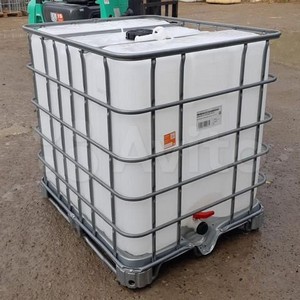
For the transport of dangerous goods, it is allowed to use packaging not only from primary, but also from recycled plastic. End-of-life plastic containers can be recycled and used in the manufacture of new products for the storage and transportation of hazardous substances. Part 1 of the UN Model Regulations defines materials made from recycled plastics, and Part 6 contains clauses establishing requirements for packaging made from recycled plastics. The issue of the use of such packaging was given attention at the meeting of the Ad Hoc Working Group on the Harmonization of RID/ADR/ADN with the UN Model Regulations held on April 21-23. Meeting paper ECE/TRANS/WP.15/AC.1/HAR/2021/4 contains a proposal to amend the text of RID/ADR/ADN based on the text of the Model Regulations to clarify the requirements for packaging made from recycled plastics. The experts proposed to supplement the definition of recycled plastic materials to fully comply with the definition in the 22nd edition of the UN Model Regulations, to introduce a requirement for the labeling of IBCs (intermediate bulk containers) made of recycled plastics with the abbreviation REC and to improve the wording to clarify and expand the use of recycled plastic containers for storage and transportation of dangerous goods. Addressing the issue of using recycled plastics is important for a greener and more sustainable use of resources. | |
Quality criteria | 14.04.2021 |
|
More than 35 years have passed since the publication of the family of ISO 9000 international standards in 1986. Has the quality of products changed at the enterprises after the implementation of the quality management system? Have the products gained access to foreign markets and have they become more competitive? Has its safety improved? The questions remain open. The terms “quality”, “quality system”, “quality management system”, “quality assurance system”, “quality programme”, “quality control” are interpreted differently in different standards. Is it possible to combine them into one term or, on the contrary, to reveal the essence of each of them? The issue has not yet been resolved. If this terminology is used in voluntary standards, then this is not so important. However, if this terminology is introduced into regulatory documents that establish requirements for product safety, the lack of a clear interpretation can play a bad role. Product safety can be assessed and measured, since safety requirements are fixed in regulations, but quality is not, since it is an abstract and individual concept. IDGCA experts, who have many years of practice in the field of safety assessment, both in maritime transport and at hazardous industrial facilities, including the space industry, prepared a proposal to the UN Sub-Committee of Experts to create a group that could evaluate the terminology used in the UN Model Regulations in relation to quality | |
Cosmonautics Day concerns all people of goodwill | 12.04.2021 |

Exactly 60 years ago, Gagarin's "Let's go!" heralded the world about the beginning of a new era – the era of manned flights into outer space. It was then, on April 12, 1961, that K.E. Tsiolkovsky’s prophecy: “Mankind will not remain forever on Earth, but in pursuit of light and space, it will first timidly penetrate beyond the atmosphere, and then conquer the entire circum-solar space” began to come true. This greatest achievement of Russia was the achievement of all mankind. The launch vehicle, which launched the Vostok satellite spacecraft, piloted by Yuri Alekseevich Gagarin, into near-earth orbit, used liquid oxygen and hydrocarbon fuel as propellants. Note that the development of national and world astronautics is inextricably linked with the use of a whole range of substances in the engines of launch vehicles and spacecraft, which belong to the category of dangerous goods. Improvement of equipment and technologies for their manufacture, transportation, storage and disposal plays a huge role in ensuring the safety of the rocket and space industry. | |
IDGCA experts have prepared a proposal for the meeting of the ECOSOC Sub-committee of Experts on the Transport of Dangerous Goods to be held on 28 June – 2 July | 09.04.2021 |
|
The IDGCA experts prepared a proposal to amend Chapter 6.7 of the UN Model Regulations on the transport of dangerous goods for discussion on 28 June – 2 July at the meeting of the UN ECOSOC Sub-committee of Experts on the transport of dangerous goods. IDGCA has a consultative status in the UN ECOSOC and participates in international meetings. You can read the proposal here. | |
New Chapter 6.9 of the UN Model Regulations on the Transport of Dangerous Goods | 26.03.2021 |
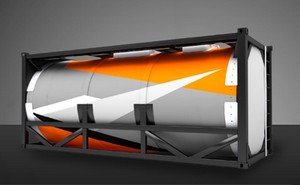
From 15 to 19 March 2021, a joint meeting of the RID Committee of Experts and the UNECE Working Group on the Transport of Dangerous Goods was held in Bern under the chairmanship of Mr. K. Pfowadel (France) and Vice-Chairperson Ms S. Garcia-Wolfrum (Spain). Along with many issues considered in accordance with the agenda, a proposal was discussed to replace the existing Chapter 6.9 of ADR “Requirements for the design, manufacture, equipment, type approval, testing and marking of integral tanks (road tanks), demountable tanks, tank containers and demountable tank bodies made of fiber-reinforced plastics (FRP)” with a new edition of a similar chapter of the Model Regulations. At the last meeting of the UN ECOSOC Subcommittee of Experts on the Transport of Dangerous Goods, which took place from November 30 to December 8, 2020, a new, previously non-existent Chapter 6.9 was added to the UN Model Regulations on the requirements for fiber-reinforced plastics tanks. It was with this new chapter of the Model Regulations that it was proposed to replace the existing Chapter 6.9 of ADR. Along with a positive reaction, some experts expressed concerns about the safety of the transport of dangerous goods in tanks made of composite materials. This was especially true for the transportation of tanks by multimodal traffic. The International Tank Container Association (ITCO) has prepared document ECE-TRANS-WP15-AC1-21-BE-inf9e expressing its concerns and inviting the Working Group to pay additional attention to the safety factors associated with the transport of dangerous goods in fiber-reinforced tanks. Some experts also expressed their doubts about the interpretation in the new Chapter 6.9 of the Model Regulations of the procedure for tank type approval and production approval. Unlike other sections of the Regulations, the new chapter focuses on the assessment of the company's quality system, and not on the fundamental safety principles, which are understood as tests, measurements, controlled technological processes, etc. Experts believe that Chapter 6.9 of ADR, if replaced by a new version, will become the basis for the development of a new chapter of the IMDG Code concerning the requirements for the marine transportation of dangerous goods in FRP tanks. | |
Joint Meeting of the RID Committee of Experts and the Working Group on the Transport of Dangerous Goods started in Bern | 15.03.2021 |

From 15 to 19 March, a joint meeting of the RID Committee of Experts and the Working Group on the Transport of Dangerous Goods takes place in Bern. The meeting is attended by experts from "IDGCA" NP. The meeting takes place online in accordance with the agenda. Among others, issues related to the requirements for tanks, the timing of their inspections and tests are being discussed. | |
| Happy International Women's Day! | 04.03.2021 |
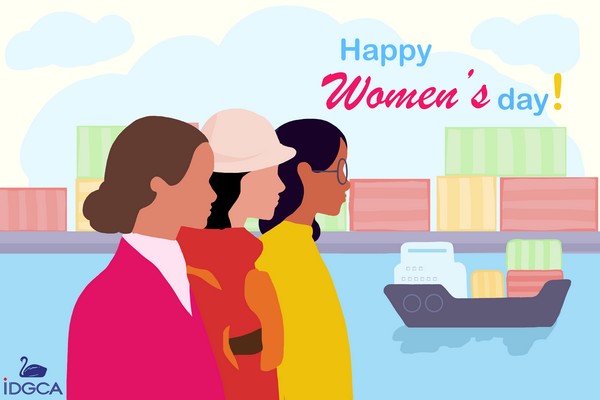 The corporate team of the International Dangerous Goods and Containers Association congratulates all women on International Women's Day and wishes them health, professional success, happiness and prosperity! We express our special gratitude to our colleagues – women working in the field of transporting dangerous goods. Happy Holidays! | |
IMO has scheduled the meetings for 2021 | 04.03.2021 |
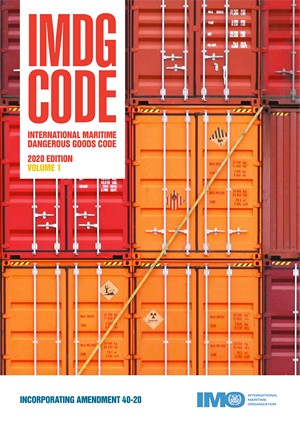
The International Maritime Organization has scheduled the work of the committees and subcommittees, taking into account the epidemiological situation in London and the possibility of face-to-face or remote participation of experts from states and non-governmental organizations. It can be assumed that the plans for the sessions in London will change, including the time and format of the next meeting of the Sub-committee on Carriage of Cargoes and Containers (CCC) scheduled for September. Despite the fact that the IMO is one of the most important UN institutions, this international institution is more closed to business and, unlike the UN, does not publish issued normative and working documents for open access, including those related to the transport of dangerous goods and containers. The main document regulating the rules for the carriage of dangerous goods by sea is the IMDG Code published by IMO. You can read the IMO Programme of Meetings for 2021 here. | |
Training of advisers for the transport of dangerous goods | 03.03.2021 |
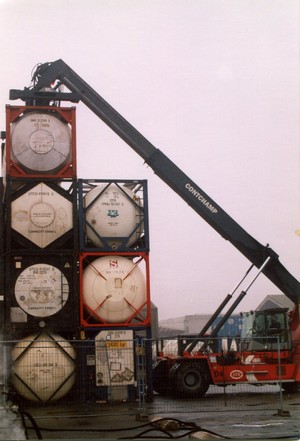
The duties of personnel responsible for safe transportation of dangerous goods by one or another mode of transport include but not limited to: preparation of transport documents, inspection of vehicles and transport equipment, organization of multimodal transportation of dangerous goods, including the maritime component, premedical first aid treatment when person was exposed to dangerous goods. If you add to this the need to be well-informed about the national and international regulatory framework and easily communicate with representatives of supervisory authorities, it becomes clear that it is necessary to undergo professional training in the educational institution where professionals in the field of transport of dangerous goods work. The next training of advisers on the transport of dangerous goods, including practical exercises, will be held at the International Staff Training Center (ISTC) from 15 to 19 March. At the same time, the certification of advisers with the issuance of certificates and entry into the Register of advisers will take place in the International Dangerous Goods and Containers Association. ISTC is certified by the Association, which has consultative status in the UN ECOSOC Committee of Experts on the Transport of Dangerous Goods and the Globally Harmonized System of Hazard Classification and Labeling of Chemical Products. The quality management system of ISTC is recognized by the leading classification society DNV GL (currently DNV) complying with the ISO 9001: 2015 standard, the certificate of conformity ¹ 251622-2017-AQ-MCW-FINAS. Classes will be held in the form of a webinar. You can download the application for training form here. | |
The Regional Marine Pollution Emergency Response Centre for the Mediterranean Sea (REMPEC) is assisting Israel regarding the oil spill off the coast of Israel | 02.03.2021 |
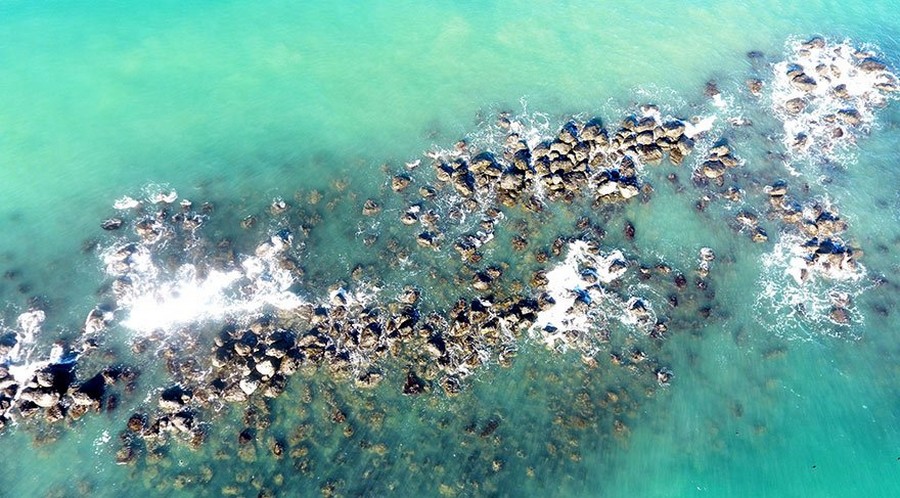
A few days ago, an oil spill occurred off the coast of Israel, leading to a serious environmental disaster for the country. On February 17, Israeli authorities requested assistance from the Regional Marine Pollution Emergency Response Centre for the Mediterranean Sea (REMPEC) administered by the International Maritime Organization (IMO). The cause and source of the pollution is being identified using satellite images. According to preliminary data, the oil spill occurred on February 11 at a distance of 50 km from the Israeli coast from one of 10 vessels in the area of the incident. REMPEC has requested information from neighboring countries on any pollution detected near their coast. The Centre is also working to forecast the consequences of the disaster for neighboring states. | |
Resolution of the Government of the Russian Federation on the approval of the list of normative legal acts | 01.03.2021 |
|
On January 1 of this year, Decree ¹ 2467 of the Government of the Russian Federation on the approval of the list of normative legal acts, including those regulating safety requirements for the transportation of dangerous goods and work with hazardous substances, came into force. The list can be found on the official website of the Government of the Russian Federation. | |
Revision of ISO standard | 25.02.2021 |
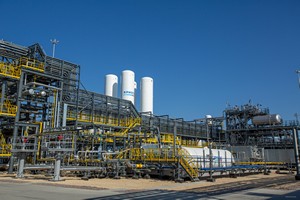
As a part of the work in the Technical Committee ISO/TC 220 "Cryogenic Vessels", IDGCA experts prepared proposals for amending the International Standard ISO 21009-2: 2015 (Ed 2) – "Cryogenic Vessels. Static vacuum insulated vessels – Part 2: Operational requirements” on behalf of the Russian Federation. Suggestions and comments refer to section 5.2 “Safety issues”. In particular, the experts pointed out that in this section it is advisable to note the need to use self-contained breathing apparatus and the features of protective equipment and special clothing for personnel, as well as to take into account the possibility of hydrogen embrittlement of steel structural materials of cryogenic vessels when they come into contact with hydrogen. | |
The information on the upcoming dangerous goods meetings and events has been published by UNECE | 11.02.2021 |

The Joint Meeting of the RID Committee of Experts and the Working Party on the Transport of Dangerous Goods will take place on 15-19 March 2021 in Bern, Switzerland. Due to the COVID 19 pandemic, it is not yet possible to indicate whether physical participation in the conference will be possible and which conference platform will be used. The provisional agenda for the spring 2021 session includes the consideration of proposals for amendments to RID/ADR/ADN. Ad hoc Working Group on the Harmonization of RID/ADR/ADN with the UN Recommendations on the TDG (10th session) will take place on 21-23 April 2021 in Geneva, Switzerland. Working Party on the Transport of Dangerous Goods (109th session) is scheduled for 03-07 May 2021 in Switzerland. ECOSOC Sub-Committee of Experts on the Transport of Dangerous Goods (58th session) will take place on 28 June – 02 July 2021 in Geneva, Switzerland. The deadline for submission of the official documents is 9 April 2021. ECOSOC Sub-Committee of Experts on the Globally Harmonized System of Classification and Labelling of Chemicals (40th session) is scheduled for 05-07 July in Geneva, Switzerland. The deadline for the submission of the official documents is 16 April 2021. | |



